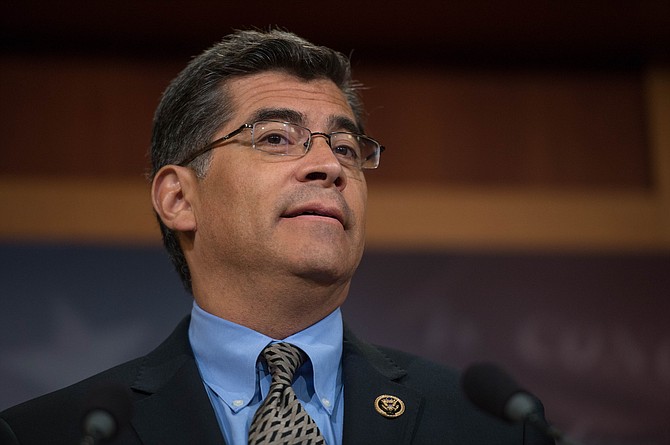California Attorney General Xavier Becerra, in a statement, called the decision "a victory for our State's ability to safeguard the privacy, safety, and constitutional rights of all of our people. Though the Trump Administration may continue to attack a state like California and its ability to make its own laws, we will continue to protect our constitutional authority to protect our residents and the rule of law." Photo by Flickr/Senate Democrats
SACRAMENTO, Calif. (AP) — A judge on Monday dismissed the federal government's claim that U.S. law trumps two California laws intended to protect immigrants who are in the country illegally, affirming his ruling last week that California was within its rights to pass two of its three so-called sanctuary laws.
U.S. District Judge John Mendez rejected the U.S. government's argument on two of the laws that the U.S. Constitution gives the federal government pre-eminent power over states to regulate immigration. The Trump administration argued that California is obstructing its immigration enforcement efforts.
As he did in last week's decision, Mendez ruled Monday that the federal government could proceed with its attempt to block part of a third California sanctuary law, which prohibits employers from allowing immigration officials on their property without warrants.
The twin rulings by Mendez, who was nominated to the federal bench by Republican President George W. Bush, allow California to continue limiting police cooperation with immigration officials and require inspections of detention facilities despite the Trump administration's lawsuit filed in March.
The lawsuit, announced by U.S. Attorney General Jeff Sessions, is part of the Trump administration's efforts to overturn so-called sanctuary jurisdictions that he said allow criminals to remain free. Supporters of sanctuary laws argue they encourage immigrants to report crimes without fearing deportation.
California's law limiting the sharing of information with federal agents "does not directly conflict" with U.S. law, Mendez wrote in a seven-page decision.
California Attorney General Xavier Becerra, in a statement, called the decision "a victory for our State's ability to safeguard the privacy, safety, and constitutional rights of all of our people. Though the Trump Administration may continue to attack a state like California and its ability to make its own laws, we will continue to protect our constitutional authority to protect our residents and the rule of law."
U.S. Department of Justice spokesman Devin O'Malley did not immediately respond to telephone and email requests for comment after normal East Coast business hours.
As for California's law that requires state inspections of detention facilities where immigrants are held, the judge wrote that he found nothing in the federal statutes saying Congress did not intend for states to have oversight of detention facilities in their borders.
The law "does not give California a role in determining whether an immigrant should be detained or removed from the country, nor does it place any substantive requirements or burdens on these detention facilities apart from providing access," Mendez wrote.
Mendez ruled last week that California cannot enforce the warrants law, so court proceedings on that portion of the law will continue. Both sides could elect to appeal the judge's decisions on any of the rulings.
Copyright Associated Press. All rights reserved. This material may not be published, broadcast, rewritten, or redistributed.



Comments
Use the comment form below to begin a discussion about this content.
comments powered by Disqus